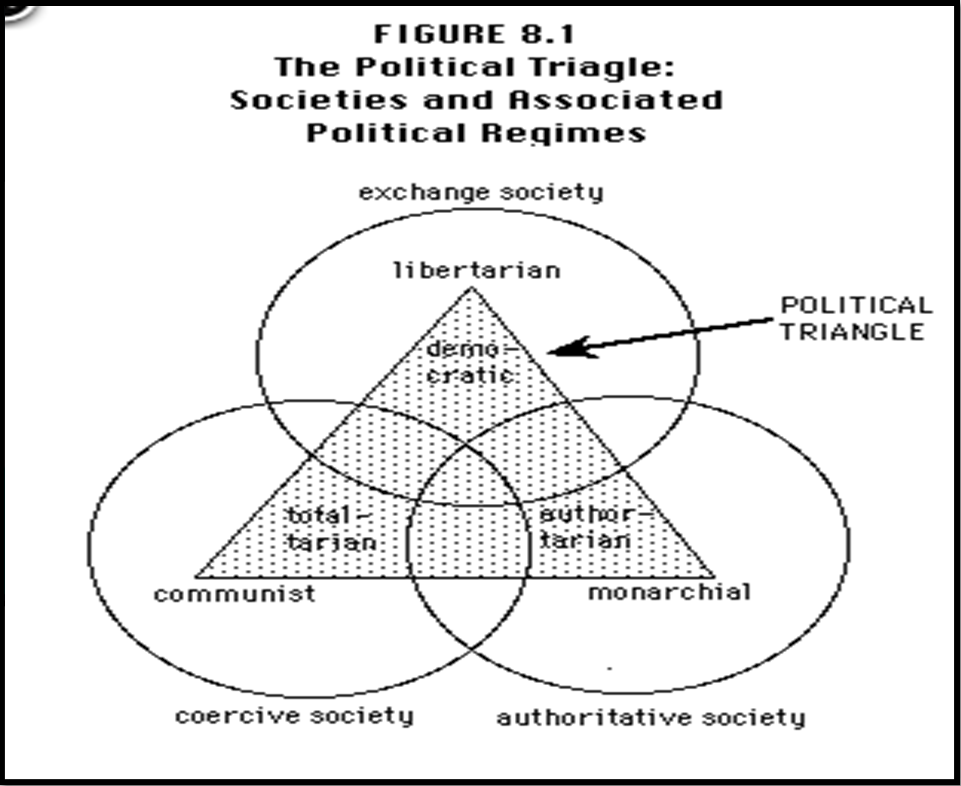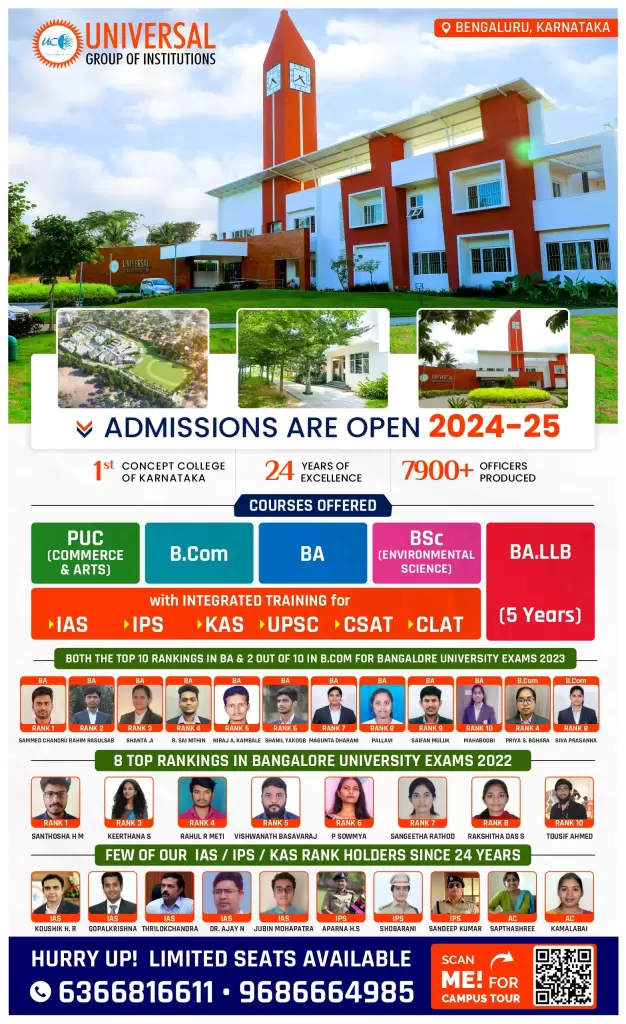FEAR AND DEMOCRACY
Syllabus:
- GS 2 : Issues and Challenges Pertaining to the Federal Structure.
Focus:
- This editorial sheds light on the deteriorating state of democracy in India, highlighting the arrest of prominent opposition leaders, the weaponization of corruption charges, and the challenges to both electoral and liberal democratic principles.
- It provides a comprehensive analysis of the current political landscape, making it a significant focus.
Source: Design Context
| Electoral Democracy vs Constitutional Democracy
Electoral Democracy: · Governed by democratically elected officials. · Features regular, free, and fair elections with universal adult franchise and multi-party competition. · Known as procedural or formal democracy. · Provides government legitimacy, which can be used for various objectives. · While essential, it doesn’t guarantee a constitutional democracy. Constitutional Democracy: · Limits majority authority through legal and institutional means, ensuring rights of individuals and minorities. · Also termed as substantial or liberal democracy. Key Features: 1. Popular Sovereignty: Government derives authority from people’s consent. 2. Majority Rule & Minority Rights: Protects fundamental rights of minorities. 3. Limited Government: Government’s powers are constrained by law and constitution. 4. Institutional & Procedural Limitations: Mechanisms that restrict government powers. Fundamental Values of Constitutional Democracy: · Basic Rights: Government’s primary goal is to protect fundamental rights, which may include life, liberty, property, employment, healthcare, and education. Rights are outlined in global and national documents like the Universal Declaration of Human Rights and the Indian Constitution. · Freedom of Conscience & Expression: Protects freedom of thought and expression for the functioning of democracy and human personality development. · Privacy & Civil Society: Safeguards private and social realms, ensuring a civil society free from government intrusion. · Justice: o Distributive Justice: Fair distribution of societal benefits and burdens. o Corrective Justice: Proper responses to wrongs and injuries. o Procedural Justice: Fair procedures in decision-making by government agencies and law enforcement. · Equality: o Political Equality: Equal political participation rights for all citizens. o Equality Before Law: Law doesn’t discriminate based on unfair criteria. o Economic Equality: Equal opportunity for citizens’ material well-being, with efforts to reduce wealth disparities through progressive taxation and welfare programs. · Openness: Based on the philosophy of openness, free exchange of ideas, access to information, and free expression across all human fields. |
Arvind Kejriwal’s Arrest and its Implications
- Context: Kejriwal’s arrest is not an isolated incident; Hemant Soren of Jharkhand faced similar imprisonment.
- Leadership: Kejriwal leads AAP, the only opposition party ruling in multiple states.
- AAP’s Victories: AAP has secured victories in Delhi twice and gained power in Punjab.
- Expansion: AAP is expanding its presence in Gujarat, which is BJP’s home base.
- Regime’s Intentions: The arrest raises questions about the ruling regime’s intentions towards opposition leaders.
Prosecution of Opposition Politicians
- Targeting: Over 90% of corruption-related prosecutions target politicians from opposition parties.
- Weaponization: Corruption charges are frequently used against politicians switching allegiance from opposition to ruling parties.
- Agency Influence: The weaponization of corruption-probing agencies is becoming evident.
- Political Career Impact: Opposition politicians face targeted prosecutions, affecting their political careers.
- Power Consolidation: Such tactics weaken the opposition and consolidate power for the ruling party.
India’s Democratic Backsliding
- Global Downgrade: Leading global democracy rating institutions have downgraded India’s democratic status.
- Not Alone: India is not alone; countries like Hungary, Turkey, and the US are also labelled as “Democratic backsliders”.
- Contradictory Claims: The downgrading contradicts claims that rating agencies are anti-India.
- Democratic Decline: Democratic backsliding refers to a decline in democratic norms and practices.
- Institutional Concerns: India’s slide raises concerns about the state of its democratic institutions.
Definitions of Democracy: Electoral vs. Liberal
- Electoral Focus: Electoral Democracy focuses on the fairness and transparency of elections.
- Liberal Consideration: Liberal Democracy considers freedom of speech, civil liberties, religious freedom, and minority rights.
- Declining Features: India is increasingly seen as an “electoral democracy” with declining liberal features.
- Global Noting: The decline in liberal democracy has been noted by various global institutions.
- Democratic Erosion: The erosion of liberal features undermines India’s democratic credentials.
Varieties of Democracy (V-Dem) Institute’s Assessment
- Electoral Autocracy Label: Since 2020, V-Dem has categorized India as an “electoral autocracy”.
- Sham Elections: This suggests that elections in India are becoming mere formalities without real choice.
- Challenging Status: V-Dem’s assessment challenges India’s status as a genuine electoral democracy.
- Kejriwal’s Arrest: The arrest of Kejriwal further questions the validity of India’s electoral democracy claim.
- Global Scrutiny: India’s democratic decline is being scrutinized and criticized globally.
Two Dimensions of Electoral Democracy
- High Turnout: Participation: India’s voter turnout has consistently exceeded 65% in recent elections.
- Deepening Fault Lines: Contestation: Fault lines are becoming more evident with growing fears and targeting of NGOs, universities, intellectuals, and media.
- Opposition Imprisonment: The imprisonment of opposition leaders hampers free and fair contestation.
- Financial Crippling: The freezing of opposition party accounts aims to financially cripple opposition forces.
- Hostile Climate: The political climate in India is becoming increasingly hostile to opposition parties.
India’s Ruling Regime’s Strategy
- Hindu Nationalist Polity: The regime aims to establish a polity based on Hindu nationalist principles.
- Parliamentary Majority Requirement: This requires a two-thirds parliamentary majority, aligning with BJP’s electoral goals.
- Opposition Weakening: The ruling regime seeks to minimize electoral uncertainties by weakening the opposition.
- Consolidation Tactics: Strategies like imprisoning opposition leaders aim to consolidate power and control.
Public Opinion and Authoritarianism
- Electorate Belief: The ruling regime believes the electorate won’t oppose their authoritarian strategies.
- Democratic Polities Fluctuation: Comparative evidence shows democratic polities can support authoritarian measures at times.
- Supportive Moments: There are moments when public opinion favors curtailing freedoms for perceived stability.
- Ruling Regime Agenda: The ruling regime may be banking on such moments to push their agenda.
- Democratic Crossroads: India’s democracy is at a crossroads, with public opinion potentially supporting authoritarian tendencies.
The Future of Democracy in India
- Dominance of Fear: India risks becoming a democracy dominated by fear and suppression.
- Liberal Values Erosion: The continued erosion of liberal democratic values threatens electoral democracy.
- Questioned Electoral Democracy: India may be heading towards a future where the very essence of electoral democracy is questioned.
- Institutional Decline: Without significant interventions, India’s democratic institutions could face further decline.
- Urgent Safeguarding: The challenges faced by Indian democracy require urgent attention to safeguard its future.
Way Forward for Indian Democracy:
- Strengthen Institutional Independence: Ensure autonomy of judiciary, election commission, and anti-corruption agencies.
- Promote Freedom of Expression: Safeguard rights of individuals, journalists, and civil society for free expression.
- Implement Electoral Reforms: Ensure transparency, fairness, and accountability in elections.
- Foster Dialogue and Inclusion: Encourage political dialogue, consensus-building, and inclusive governance.
- Empower Local Governance: Strengthen grassroots democracy and citizen participation in decision-making.
- Combat Corruption: Establish anti-corruption mechanisms and ensure accountability.
- Educate and Engage the Public: Promote civic education and encourage citizen engagement in democratic processes.
- Ensure Media Freedom: Protect journalistic integrity and independence, allowing for unbiased reporting and diverse opinions.
- Promote Digital Literacy: Educate citizens on digital platforms, enhancing their ability to access information and participate in online discussions.
- Encourage Youth Participation: Engage and empower the youth through civic education and leadership opportunities in political processes.
- Strengthen Whistleblower Protections: Provide legal protections and incentives for whistleblowers to expose corruption and malpractice.
- Enhance Transparency in Political Funding: Implement measures to disclose and regulate political donations, reducing the influence of undisclosed money in politics.
Conclusion:
India stands at a critical juncture where the foundations of its democratic institutions are under threat. With rising authoritarian tendencies, weakening opposition, and declining liberal values, urgent interventions are needed to safeguard the future of Indian democracy and restore its democratic credentials.
Source:
Mains Practice Question:
Examine the implications of the arrest of prominent opposition leaders, the weaponization of corruption charges, and the declining liberal democratic principles on the state of democracy in India.





